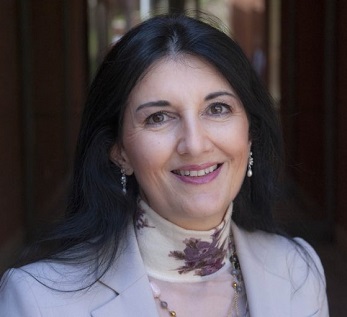Internationally renowned economist and author of The Sustainable Company, Chiara Mio, a professor of Business Economics at Ca’ Foscari University in Venice and independent director of Sofidel’s board of directors, tells Future how a new paradigm of business economics is influencing sustainability
For many years, you have been talking advocating “a new paradigm of business economics” and a responsible approach to create value for businesses and society in the medium to long term. What should businesses be doing to be more sustainable?
Chiara Mio: There is a widespread aspiration to get the sustainability ‘badge’ because many have realized that the world is moving in that direction. However, there is still some confusion and there are still many businesses that confuse sustainable practices with social responsibility or charitable gestures.
They are three different concepts. Charity is an act that does not change the system and, paradoxically, it needs injustice to exist in order to be practiced. Corporate social responsibility [CSR] intervenes from an end-of-pipe perspective; it puts a filter at the end of the process to limit negative externalities; still, it does not change how the process works.
Only long-term value creation, or sustainability, intervenes on production, modifies supply chains and plants, and redesigns products at their roots to avoid or minimize environmental and social damage.
How is this playing out in practice at a local level as in Italy?
Chiara Mio: The situation in Italy is patchy, but better than what the [observers] say. Our country can count on a model of responsible proximity capitalism, based on family businesses that are naturally inclined towards sustainability. It is a matter of helping them translate this intrinsic vocation, bring it out and interpret it in a modern way according to environmental and social guidelines.
Instead, what spawned the disasters of late 2008 was opportunist capitalism. Short-termism is antithetical to sustainability. Luckily, today there are good signals from the market: many investment funds, especially those that manage pensions and savings, which must guarantee income and cash flows in twenty or thirty years to those who invest, choose only companies that can document and strengthen their sustainability. Not only and not because it is fair, but because those companies are less risky. A virtuous circle is thus established.
Entrepreneurs and managers must ask themselves, ‘What will my company look like in 10- or 20-years? What do I want it to look like?’ They have to want their company to not only still be in the marketplace, but to be in the marketplace by giving back to the community.
“Entrepreneurs and managers must ask themselves, ‘What will my company look like in 10- or 20-years? What do I want it to look like?’ They have to want their company to not only still be in the marketplace, but to be in the marketplace by giving back to the community”
Chiara Mio
In your latest book L’azienda sostenibile [The Sustainable Company] you stress the importance of telling only what has actually been done. Can you explain in more detail?
Chiara Mio: It is a rule of life before being an economic theory: the communication that ‘strikes’ the most is what we express with facts and our behavior. Credibility comes from consistency and transparency. When sceptical entrepreneurs or managers ask me why their company should be sustainable, they don’t realize that it’s a bit like asking, ‘Why do I have to behave?’ It’ is a question of values: if these are missing, any intention of sustainability is lost.
However, there is also an obvious opportunity issue. Today, embracing sustainability means not only following a general market trend, but being able to get more financial credit at a lower cost. It also means attracting young, high-quality human resources, because Generation Z demands to work in sustainable companies where these young Gen Z people can balance work and personal time well.
Making sustainability measurable is a hot topic. What are the main, internationally recognized indicators and what future developments will there be? Is there a problem with uniformity of standards and criteria?
Chiara Mio: Measurement is not the goal; it is an instrumental action: therefore, I answer, ‘Tell me why you want to measure it and I will tell you how’. Because sustainability intercepts multiple dimensions, many purposes and different stakeholders, it is virtually impossible to have the one measure that is valid erga omnes [towards everyone]. This is not just an operational limitation: environmental, social, and economic value cannot be expressed in currency or one universal measure.
Rather, it is a matter of recognizing that different stakeholders may attribute different values to the same outcome: every action, every effect of corporate activities is polysemantic. Simplifying can mean distorting or trivializing.
We will still see a phase of analysis of different reading perspectives for several years. Only after consolidating an ability to read multiple registers and collecting and filing those perspectives can we agree on grammar and rules to measure their application.
For several years, you have been the president of Crédit Agricole FriulAdria, the first woman in Italy to head up a bank. What, if any, are the biggest challenges you have encountered in this assignment?
Chiara Mio: This topic is not unrelated to that of sustainability. The company I am a part of has shown foresight and courage in this regard, anticipating a sensibility that we later found in the goals of the United Nations 2030 Agenda. Therefore, I can say that I have worked over the years and continue to work today to ensure that plural leadership is the winning model. When a single (male) orientation prevails in a company and the wealth of ideas is ignored, resources are wasted and people – in this case, women are subdued.
In general, I believe it is desirable to spread plural leadership models across the board, not only in the financial world but also in the institutional and political worlds. How positive it is to work in companies where people are respected, listened to, and valued. It is a condition that should be normal, especially because it is successful and fruitful from every point of view.







